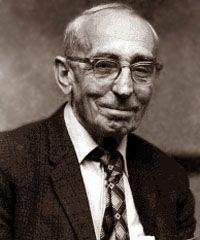Пользователь - o 3b3e7475144cf77c
На электронном книжном портале my-library.info можно читать бесплатно книги онлайн без регистрации, в том числе Пользователь - o 3b3e7475144cf77c. Жанр: Прочее издательство неизвестно, год 2004. В онлайн доступе вы получите полную версию книги с кратким содержанием для ознакомления, сможете читать аннотацию к книге (предисловие), увидеть рецензии тех, кто произведение уже прочитал и их экспертное мнение о прочитанном.
Кроме того, в библиотеке онлайн my-library.info вы найдете много новинок, которые заслуживают вашего внимания.

Пользователь - o 3b3e7475144cf77c краткое содержание
o 3b3e7475144cf77c читать онлайн бесплатно
of what he called "New Thought," and then he would wander about the garden, looking at the
flowers and the birds, and perhaps giving them a treatment—for they too had life in them and
were products of love. Bienvenu appeared to contain everything that Mr. Dingle needed, and
he rarely went off the estate unless someone invited him.
The strangest whim of fate, that the worldly Beauty Budd should have chosen this man of
God to accompany her on the downhill of life! All her friends laughed over it, and were
bored to death with her efforts to use the language of "spirituality." Certainly it hadn't kept her
from working like the devil to land the season's greatest "catch" for her son; nor did it keep
her from exulting brazenly in her triumph. Beauty's religious talk no more than Lanny's
Socialist talk was causing them to take steps to distribute any large share of Irma's unearned
increment. On the contrary, they had stopped giving elaborate parties at Bienvenu, which was
hard on everybody on the Cap d'Antibes—the tradesmen, the servants, the musicians, the
couturiers, all who catered to the rich. It was hard on the society folk, who had been so scared
by the panic and the talk of hard times on the way. Surely somebody ought to set an example
of courage and enterprise—and who could have done it better than a glamour girl with a whole
bank-vault full of "blue chip" stocks and bonds? What was going to become of smart society if its
prime favorites began turning their estates into dairy farms and themselves into stud cattle?
V
There came a telegram from Berlin: "Yacht due at Cannes we are leaving by train tonight
engage hotel accommodations. Bess." Of course Lanny wouldn't follow those last instructions.
When friends are taking you for a cruise and paying all your expenses for several months, you
don't let them go to a hotel even for a couple of days. There was the Lodge, a third house on
the estate; it had been vacant all winter, and now would be opened and freshly aired and dusted.
Irma's secretary, Miss Featherstone, had been established as a sort of female major-domo and
took charge of such operations. The expected guests would have their meals with Irma and
Lanny, and "Feathers" would consult with the cook and see to the ordering of supplies.
Everything would run as smoothly as water down a mill-race; Irma would continue to lie in the
sunshine, read magazines, listen to Lanny play the piano, and nurse Baby Frances when one of
the maids brought her.
Lanny telephoned his old friend Emily Chattersworth, who took care of the cultural activities
of this part of the Riviera. Her drawing-room was much larger than any at Bienvenu, and
people were used to coming there whenever a celebrity was available. Hansi Robin always
played for her, and the fashionable folk who cared for music and the musical folk who were
socially acceptable would be invited to Sept Chenes for a treat. Emily would send Hansi a check,
and he would endorse it over to be used for the workers' educational project which was Lanny's
special hobby.
Just before sundown of that day Lanny and Irma sat on the loggia of their home, which
looked out over the Golfe Juan, and watched the trim white Bessie Budd glide into the harbor of
Cannes. They knew her a long way off, for she had been their home during the previous
summer, and Lanny had taken two other cruises in her. With a pair of field-glasses they could
recognize Captain Moeller, who had had a chance to marry them but had funked it. They could
almost imagine they heard his large Prussian voice when it was time to slow down for passing
the breakwater.
Next morning but one, Lanny drove into the city, with his little half-sister Marceline at his
side and Irma's chauffeur following with another car. The long blue express rolled in and
delivered five of their closest friends, plus a secretary and a nursemaid in a uniform and cap
with blue streamers, carrying an infant in arms. It was on account of this last that the cruise was
being taken so early in the year; the two lactant mothers would combine their dairy farms,
put them on shipboard, and transport them to delightful places of this great inland sea, famed
in story.
Just prior to the World War, Lanny Budd, a small boy traveling on a train, had met a Jewish
salesman of electrical gadgets; they had liked each other, and the stranger had given Lanny his
card. This small object had lain in a bureau drawer; and if, later on, Lanny hadn't happened
to be rummaging in that drawer, how much would have been different in his life! He
wouldn't have written to Johannes Robin, and Johannes wouldn't have come to call on him in
Paris, and met Lanny's father, and with the father's money become one of the richest men in
Germany. Lanny's half-sister wouldn't have met Hansi Robin, and shocked her family by
marrying a Jewish musician. The yacht wouldn't have been called the Bessie Budd, and wouldn't
have taken Lanny and his family on three cruises, and been the means of Lanny and Irma's
getting married in a hurry. They mightn't have got married at all, and there wouldn't have
been any honeymoon cruise to New York, or any Baby Frances, or any floating dairy farm! In
short, if that business card, "Johannes Robin, Agent, Maatschappij voor Electrische
Specialiteiten, Rotterdam," had stayed covered up by Lanny Budd's neckties and handkerchiefs
most of Lanny's life would have been missing!
VI
Two happy members of the prosperous classes welcoming five of their intimate friends on the
platform of a railroad station. Everybody there knew who the Budds were, and knew that when
they hugged and kissed people, and laughed and chatted with them gaily, the people must be
wealthy and famous like themselves. A pleasant thing to have friends whom you can love and
appreciate, and who will love and appreciate you. Pleasant also to have villas and motorcars and
yachts; but many people do not have them, and do not have many dear friends. They know
themselves to be dull and undistinguished, and feel themselves to be lonely; they stand and watch
with a sad envy the behavior of the fortunate classes on those few occasions when they
condescend to manifest their feelings in public.
Johannes Robin was the perfect picture of a man who has known how to make use of his
opportunities in this world. His black overcoat of the finest cloth lined with silk; his black
Homburg hat; his neatly trimmed little black mustache and imperial; his fine leather traveling-
bags with many labels; his manner of quiet self-possession; his voice that seemed to be caressing
you—everything about him was exactly right. He had sought the best of both body and mind
and knew how to present it to the rest of the world. You would never hear him say: "Look at
what I, Johannes Robin, have achieved!" No, he would say: "What an extraordinary civilization,
in which a child who sat on the mud floor of a hut in a ghetto and recited ancient Hebrew texts
while scratching his flea-bites has been able in forty years to make so much money!" He
would add: "I'm not sure that I'm making the best use of it. What do you think?" That
flattered you subtly.
As for Mama Robin, there wasn't much you could do for her in the way of elegance. You
could employ the most skillful couturier and give him carte blanche as to price, but Leah, wife of
Jascha Rabinowich, would remain a Yiddishe mother, now a grandmother; a bit dumpier every
year, and with no improvement in her accent, whether it was Dutch or German or English she
was speaking. All she had was kindness and devotion, and if that wasn't enough you would
move on to some other part of the room.
The modern practice of easy divorces and remarriages makes complications for genealogists.
Lanny had grown tired of explaining about his two half-sisters, and had taken to calling them
sisters, and letting people figure it out. The name of Marceline Detaze made it plain that she was
the daughter of the painter who had been killed in the last months of the war; also it was possible
to guess that Bessie Budd Robin was the daughter of Lanny's father in New England. On that
stern and rock-bound coast her ancestors had won a hard and honest living; so Bess was tall
and her features were thin and had conscientiousness written all over them. Her straight
brown hair was bobbed, and she wore the simplest clothes which the style- makers would allow
to come into the shops. She was twenty-two and had been married four years, but had put off
having children because of her determination to play accompaniments for Hansi in exactly the
way he wanted them.
Very touching to see how she watched every step he took, and managed him exactly as her
mother at home managed a household. She carried his violin case and wouldn't let him pick up
a suitcase; those delicate yet powerful fingers must be devoted to the stopping of violin strings
or the drawing of a bow. Hansi was a piece of tone-producing machinery; when they went on tour
he was bundled up and delivered on a platform, and then bundled up and carried to a hotel
and put to bed. Hansi's face of a young Jewish saint, Hansi's soulful dark eyes, Hansi's dream of
loveliness embodied in sound, drove the ladies quite beside themselves; they listened with hands
clasped together, they rushed to the platform and would have thrown themselves at his feet, to say
nothing of his head. But there was that erect and watchful-eyed granddaughter of the Puritans,
with a formula which she said as often as it was called for: "I do everything for my husband
that he requires—absolutely everything!"
The other members of the party were Freddi Robin's wife, and her baby boy, a month older
than little Frances. Freddi was at the University of Berlin, hoping to get a degree in economics.
Rahel, a serious, gentle girl, contributed a mezzo-soprano voice to the choir of the yacht; also
she led in singing choruses. With two pianos, a violin, a clarinet, and Mr. Dingle's mouth-organ,
they could sail the Mediterranean in safety, being able to drown out the voices of any sirens
who might still be sitting on its rocky shores.
VII
If music be the food of love, play on! They were gathered in Lanny's studio at Bienvenu,
which had been built for Marcel and in which he had done his best work as a painter. There
were several of his works on the walls, and a hundred or so stored in a back room. The piano
was the big one which Lanny had purchased for Kurt Meissner and which he had used for seven
years before going back to Germany. The studio was lined with bookcases containing the
library of Lanny's great-great-uncle. Here were all sorts of memories of the dead, and hopes of
the living, with cabinets of music-scores in which both kinds of human treasures had been
embodied and preserved. Hansi and Bess were playing Tchaikovsky's great concerto, which
meant so much to them. Hansi had rendered it at his debut in Carnegie Hall, with Bess and her
parents in the audience; a critical occasion for the anxious young lovers.
Next evening they went over to Sept Chenes to meet a distinguished company, most of the
fashionable people who had not yet left the Cote d'Azur. The whole family went, including Irma
and Rahel. Since it was only a fifteen-minute drive from Bienvenu, the young nursing mothers
might have three hours and a half of music and social life; but they mustn't get excited. The
two of them heartened each other, making bovine life a bit more tolerable. The feat they were
performing was considered picturesque, a harmless eccentricity about which the ladies gossiped;
the older ones mentioned it to their husbands, but the younger ones kept quiet, not wishing to
put any notions into anybody's head. No Rousseau in our family, thank you!
Hansi and Bess played Lalo's Symphonie Espagnole, a composition which audiences welcome
and which has to be in the repertoire of every virtuoso: a melancholy and moving andante over
which the ladies may sigh; a scherzando to which young hearts may dance over flower-strewn
meadows. It was no holiday for Bess, who wasn't sure if she was good enough for this
fastidious company; but she got through it all right and received her share of compliments.
Lanny, who knew the music well, permitted his eyes to roam over the audience, and wondered
what they were making of it, behind the well-constructed masks they wore. What to them was
the meaning of these flights of genius, these incessant calls to the human spirit, these unremitting
incitements to ecstasy? Whose feet were swift enough to trip among these meadows? Whose
spring was high enough to leap upon these mountain-tops? Who wept for these dying worlds?
Who marched in these triumphal processions, celebrating the birth of new epochs?
The thirty-year-old Lanny Budd had come to understand his world, and no longer cherished
any illusions concerning the ladies and gentlemen at a soiree musicale. Large, well-padded
matrons who had been playing bridge all afternoon, and had spent so many hours choosing the
fabrics, the jeweled slippers, the necklaces, brooches, and tiaras which made up their splendid
ensemble—what fairy feet did they have, even in imagination? What tears did they shed forthe
lost hopes of mankind? There was Beauty's friend, Madame de Sarce, with two marriageable
daughters and an adored only son who had squandered their fortune in the gambling-palaces.
Lanny doubted if any one of the family was thinking about music.
And these gentlemen, with their black coats and snowy shirt-fronts in which their valets had
helped to array them—what tumults of exultation thrilled their souls tonight? They had all
dined well, and more than one looked drowsy. Others fixed their eyes upon the smooth bare
backs of the ladies in front of them. Close to the musicians sat Graf Hohenstauffen, monocled
German financier, wearing a pleased smile all through the surging finale; Lanny had heard
him tell Johannes Robin that he had just come from a broker's office where he had got the
Похожие книги на "o 3b3e7475144cf77c", Пользователь
Пользователь читать все книги автора по порядку
Пользователь - все книги автора в одном месте читать по порядку полные версии на сайте онлайн библиотеки My-Library.Info.




